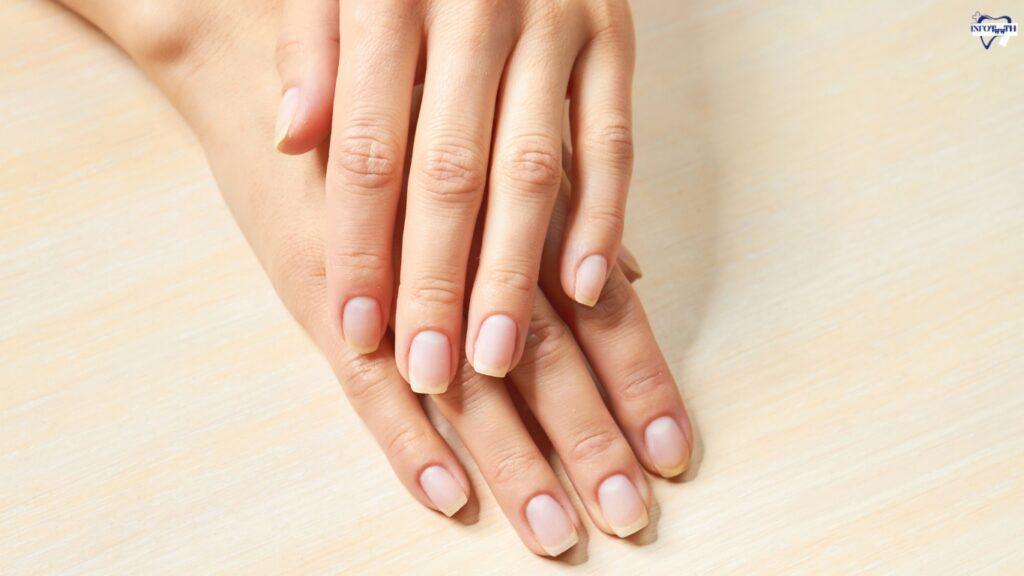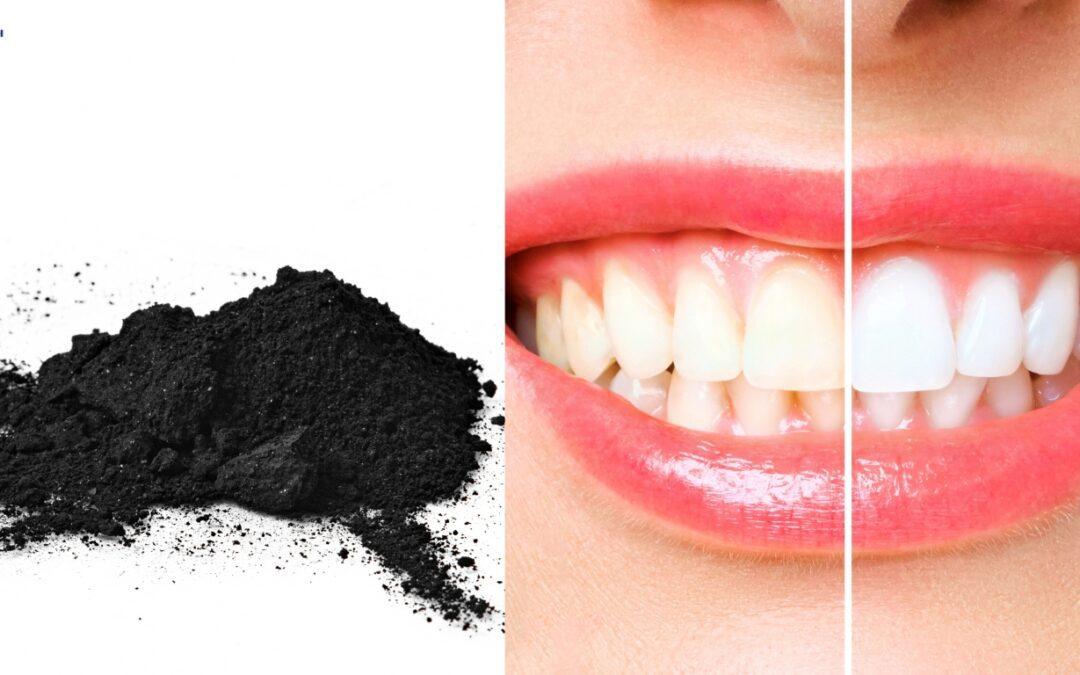A radiant white smile is frequently interpreted as a sign of confidence and good health. But it might not be easy to get and keep that beautiful smile. Teeth whitening Powder provides an easy and efficient way to get rid of stains and make your teeth look brighter. To assist you in obtaining your finest smile, we’ll go over the uses, advantages, and advice for selecting the best teeth-whitening powder in this blog.
Table of Contents
What is Teeth Whitening Powder?
A common oral hygiene product that brightens and whitens teeth to give a smile that is whiter and more appealing is teeth whitening powder. In contrast to conventional toothpaste, teeth-whitening powders are generally composed of natural substances such as baking soda, activated charcoal, and herbal extracts. These chemicals combine to effectively remove surface stains without causing any harm to the Enamel. For example, activated charcoal lifts stains and toxins from teeth by binding to them, and baking soda neutralizes acids and polishes enamel.
You may add these powders to your normal oral hygiene practice because they are simple to use. You can get obvious effects by just dipping a damp toothbrush into the powder and brushing as normal. Tooth whitening powders are a natural and affordable substitute for more costly dental whitening procedures. They work particularly well at removing common stains left by wine, coffee, tea, and smoking.
Benefits of Teeth Whitening Powder
Powdered teeth whitening has many advantages for people who want a more confident, whiter smile. These are the four main benefits:
Instant Results
The capacity of teeth whitening powder to produce immediate results is one of its most notable advantages. Teeth whitening powder can produce apparent results after just a few applications, in contrast to some whitening procedures that need to be used for weeks to show any results. This is particularly alluring to people who want to brighten their grins for formal occasions or pictures instantly.
Cost-Effective Solution
Professional teeth-whitening procedures can be very costly; they frequently run into the hundreds of dollars. On the other hand, teeth-whitening powder is a far less expensive choice. A single whitening powder container can last for several weeks or even months, offering a cost-effective way to keep your teeth dazzling without having to pay a lot of money for dental work.
Gentle on Enamel
Too much bleaching agent can damage tooth enamel, causing sensitivity and pain. On the other hand, teeth-whitening powder is designed to be mild on Enamel and still remove stains well. Regular usage of the powder is safe due to its thin abrasive particles that softly polish the teeth’s surface without causing damage.

Natural Ingredients
The fact that teeth whitening powder is made of natural components is another important advantage. Common ingredients like baking soda, herbal extracts, and activated charcoal offer a chemical-free substitute for conventional whitening solutions. While baking soda neutralizes acids and aids in tooth polishing, activated charcoal is renowned for its exceptional adsorption qualities, adhering to stains and pollutants. Herbal extracts’ antibacterial and anti-inflammatory properties can also improve oral health in general.
How Teeth Whitening Powder Works?
The use of teeth-whitening powder has grown in favor of a safe, all-natural substitute for whitening procedures. Without the use of harsh chemicals, this unique solution uses the power of natural substances to brighten your smile and eliminate stains. However, how precisely does teeth-whitening powder function?
Fundamentally, teeth-whitening powder removes stains using mild abrasive and natural stain removers. Because of its potent adsorption abilities, activated charcoal is the primary component of the majority of teeth-whitening powders. Activated charcoal attaches itself to surface spots on your teeth and lifts them off while you brush. This method aids in removing stains from wine, coffee, tea, and other materials that stain.
Many teeth-whitening powders also include baking soda, a mild abrasive that helps remove surface stains, in addition to activated charcoal. Additionally, baking soda neutralizes oral acids, lowering the possibility of enamel erosion and fostering a more hygienic oral environment. Certain powders contain clay, such as kaolin or bentonite, which serves as an abrasive and also contains minerals that can help strengthen your teeth.
Teeth whitening powders frequently have natural flavorings and essential oils added for increased freshness and extra antibacterial properties. For example, peppermint oil kills bacteria that cause foul breath and leaves your mouth feeling refreshed.
Different Types of Teeth Whitening Powder
Powder-based teeth whitening systems provide a range of choices to suit personal tastes and requirements. The following three categories are primary:
Activated Charcoal Powders
Powdered activated charcoal is one of the most widely used products for teeth whitening. This kind of powder effectively binds and lifts surface stains from the teeth by taking advantage of the porous structure of activated charcoal. Activated charcoal, which is made from materials like bamboo or coconut shells, is well-known for having potent adsorption powers. It aids in removing stains from wine, coffee, tea, and other staining agents when added to teeth-whitening powders. Though it may seem intimidating, the black powder is safe to apply on teeth. It offers a natural whitening treatment without the need for harmful chemicals. But be careful not to overdo it, or the Enamel will be harmed.
Baking Soda-Based Powders
Sodium bicarbonate, also known as baking soda, is another common component in teeth-whitening powders. The gentle abrasive qualities of baking soda help remove surface stains from teeth, resulting in a brighter smile. Furthermore, baking soda has an alkaline quality that helps balance out acids in the mouth, lowering the risk of enamel erosion and improving dental health in general. To increase their potency and give them a nice flavor, these powders are frequently mixed with additional organic components. Powders made of baking soda are safe and efficient for regular usage because they are soft on the teeth and gums.
Natural & Herbal Powders
Natural and herbal teeth-whitening powders are geared toward people who want to take a holistic approach to dental health. These powders frequently contain a combination of natural substances with antibacterial and anti-inflammatory qualities, like neem, clove, and miswak. It is also possible to utilize clay variations like bentonite or kaolin, which provide minerals that help strengthen teeth and function as a mild abrasive. Essential oils that provide extra antibacterial properties and taste, such as peppermint, spearmint, or tea tree oil, are added.

Natural and herbal powders offer a mild, chemical-free teeth-whitening experience, which makes them perfect for people who have sensitive teeth or who want organic goods.
How to Use Teeth Whitening Powder?
It’s a simple-to-use teeth-whitening powder and an addition to your regular oral hygiene regimen. To achieve successful outcomes, adhere to these easy steps:
To get started, moisten your toothbrush with water. To ensure that the powder adheres effectively, make sure the bristles are damp but not drenched.
Use: Moisten your toothbrush and dunk it into the teeth-whitening powder. It’s generally enough to coat the bristles lightly; a tiny bit goes a long way.
Cleaning: Pay close attention to all of your teeth surfaces when brushing, just as you would with ordinary toothpaste. To prevent scratching your Enamel, move in moderate circular motions.
Rinsing: To get rid of any residue, give your mouth a vigorous water rinse two to three minutes after brushing. Make sure there is no powder in your mouth after spitting out extra water.
Frequent application: Follow the directions on the product package or apply the teeth-whitening powder two to three times per week for optimal results. Using it frequently will keep your teeth white and bright.
Comparing Teeth Whitening Powder to Other Whitening Methods
There are several teeth-whitening techniques available, each with advantages and disadvantages of their own, for getting a brighter smile. The following is a comparison between teeth-whitening powder, whitening toothpaste, and whitening strips:
Whitening Strips
Whitening strips are thin, pliable strips covered in a gel that contains peroxide. They are immediately placed on the teeth and left on for a predetermined amount of time—usually 30 minutes a day for two weeks. Whitening strips can yield obvious results and are excellent in removing stains from the surface. On the other hand, they can be difficult to use regularly and make certain people sensitive. On the other hand, teeth whitening powder employs natural substances that are kinder to your teeth and gums, are easier to incorporate into your routine, and are less prone to create discomfort.
Professional Dental Treatments
The most noticeable and quick results come from professional dental whitening procedures like laser or in-office whitening. A dentist administers these procedures, which call for the use of bleaching substances at high concentrations. Professional treatments are the most costly choice and may necessitate several visits despite their high effectiveness. They may also result in transient sensitivity. On the other hand, teeth whitening powder is an affordable, practical, and at-home substitute. Despite the more slow results, the procedure is non-invasive and doesn’t include harmful chemicals.
Whitening Toothpaste
When used on a regular basis, whitening toothpaste’s chemical and mild abrasive ingredients work to eliminate surface stains. Although it is convenient, whitening toothpaste usually only makes minor changes and may take longer to produce obvious results. Additionally, compounds that might be abrasive if used excessively are frequently included in it. Tooth whitening powder, particularly those containing natural components like baking soda and activated charcoal, offers a more concentrated whitening result without compromising enamel integrity, making it a more secure and efficient choice for frequent use.

Conclusion
To sum up, teeth whitening powder provides a safe, all-natural substitute for conventional whitening techniques like strips, in-office procedures, and toothpaste. It efficiently eliminates stains without causing irritation or harming enamel, thanks to components like baking soda and activated charcoal. While in-office procedures yield faster results, the teeth-whitening powder offers a handy, affordable way to get and maintain a whiter smile at home. For the finest whitening results, select the technique that most closely matches your needs and preferences.
FAQs
Q: Is it okay to use teeth-whitening powder every day?
A: Depending on the product, yes. While some teeth-whitening powders are meant to be used every day, others advise using them less frequently to avoid wearing down the Enamel. Always adhere to the manufacturer’s directions for the particular product you’re using.
Q: Can professional whitening procedures be substituted with teeth whitening powder?
A: The effects of professional teeth-whitening procedures can be preserved and improved with the use of teeth-whitening powders. Professional procedures like tooth bleaching or laser whitening, however, might be more successful for noticeable whitening.
Q: Does whitening powder for teeth have any adverse effects?
A: When using abrasive substances, common adverse effects include gum irritation and teeth sensitivity. You must use the powder as prescribed and stop using it if you feel any pain.
Q: How long does using teeth-whitening powder take to show results?
A: The product and specific tooth stains affect the results. After a few uses, some people might see an improvement in brightness. In contrast, others might need to use the product consistently for many weeks to see any real benefits.
Q: Can someone with sensitive teeth use teeth-whitening powder?
A: It is best to select a teeth-whitening powder that is made especially for sensitive teeth or to see a dentist before using it. While certain powders are made to be kinder to gums and Enamel, others may make sensitivity worse. To reduce discomfort, always begin with a patch test and carefully follow usage directions.

